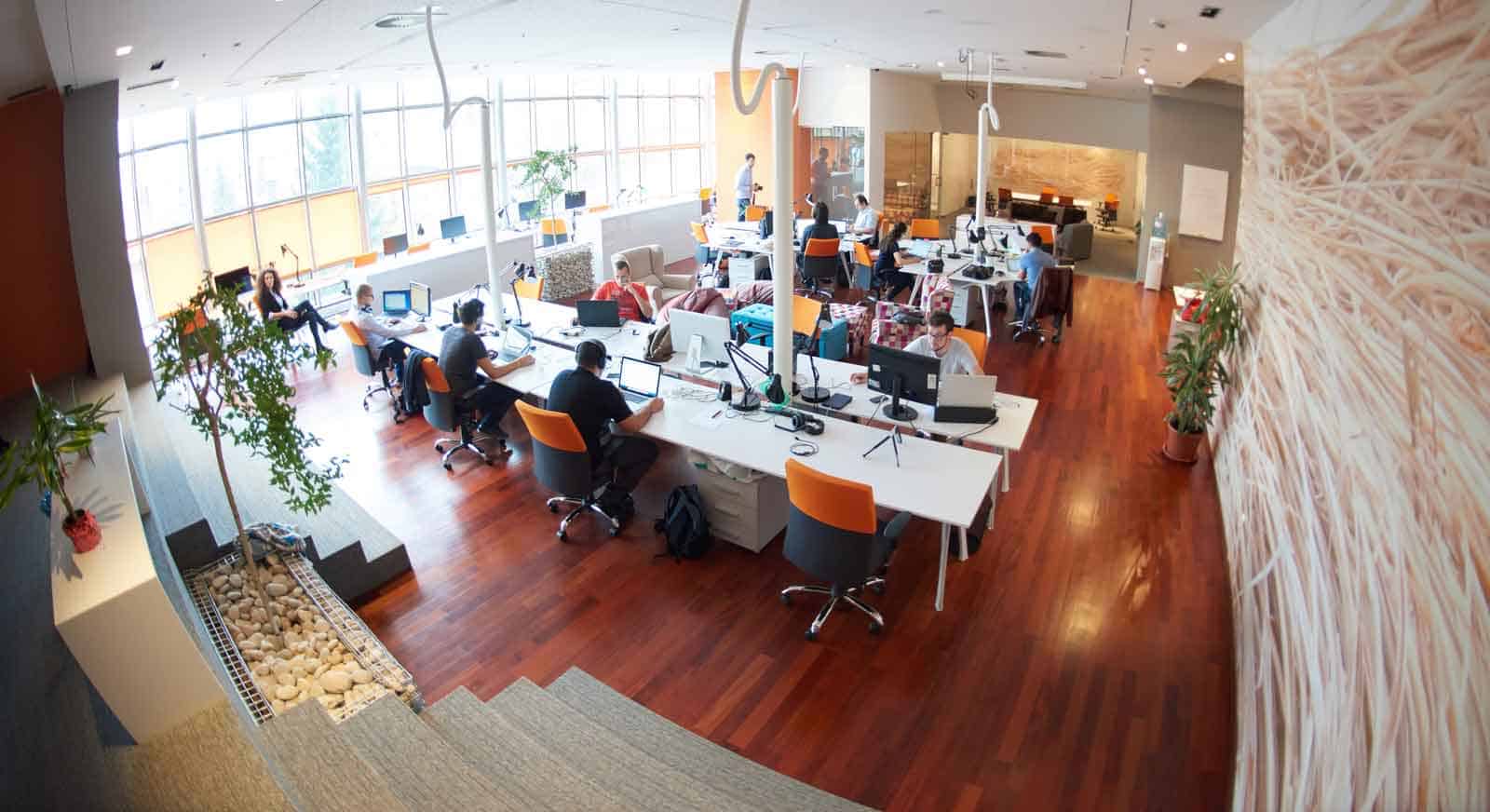Over the past several years, coworking spaces have exploded in popularity, peppering cities like New York, Detroit, London, San Francisco, Hong Kong, Berlin, Cleveland, and more. Their increasing popularity is due to their ability to help people save money, find resources, and work better by providing a community, a flexible structure around which to orient their work habits, and an increased sense of purpose or meaning unrelated to the type of work people are actually doing. Working in these spaces increases the chances of being surrounded by talented, like-minded individuals and teams and allows access to services and resources one might otherwise not have.
Different coworking facilities offer unique services, different atmospheres, and are full of various kinds of people. They are known for welcoming tie-wearing businessmen, entrepreneurs, paint-stained artists, and everyone in between—which is part of what makes their networking capabilities so alluring and valuable—however, it can be intimidating if you don’t know where to start or what you’re looking to gain from a coworking space.
Uses for Coworking Spaces
- Networking: Coworking spaces generally charge tenants by the number of desks needed in an office. One of the major perks coworking facilities offer is its massive networking and socializing capabilities. For many individuals, working from home is a great way to increase productivity and allow flexibility. However, it also provides very few opportunities to meet new people and network. Even for those who work in office settings, they encounter the same people on a daily basis. Coworking spaces offer the ability to change up the work routine and meet new people—potential new friends, colleagues, employers, employees, or mentors.
- Collaboration: Finding and connecting with like-minded, driven individuals or teams isn’t hard when you carefully select your coworking facility. Most facilities work towards cultivating an environment to ensure participants feel like they are part of a community and can approach each other, but only if they want to. Working in a coworking space offers a chance to collaborate with others on projects, build long- and short-term business goals, and even find new business partners. And since many coworking spaces deliver different atmospheres—whether they are relaxed and casual or strictly business-oriented—you can select an environment that aligns with your business goals and that spurs productivity.
- Incubator: Incubators or accelerators are geared towards helping push startups towards success. They focus on providing an environment in which startups can connect with one another and entrepreneurs can make valuable contacts or meet mentors. These spaces are frequently full of talented, dedicated, young individuals with great ideas who are seeking support, training, or funding. These kinds of facilities are highly viable options for those who are interested in developing and building their startups, but need additional resources and connections.
- Meeting Space: Small businesses, startups, or other companies that are just getting their feet off the ground often rent office space within coworking facilities to host meetings or events that might otherwise be too large to host in their regular offices, which sometimes consist of a local café of a home office. Booking a meeting room only when you need it is an economical and easy way to save money and still ensure the comfort and enjoyment of event participants. Many coworking spaces also include fully stocked kitchens and bars or allow catering, which provides easy event planning options, from more casual team meetings to more formal events with clients or investors.
Types of Coworking Spaces
- Mission-Oriented: Many coworking spaces aim to support low-income individuals, entrepreneurs, and artists or minority-owned businesses and social enterprises. They focus on cultural diversity and empowerment with the intent to help business-minded individuals who might otherwise not have access to resources critical to an organization’s success. These facilities provide social entrepreneurs with connections, donations, and other assets. Other mission-oriented coworking spaces help build and support organizations that focus on social justice issues, animal rights, pro bono legal services, environmental issues, and more.
- Entrepreneurial: Startups and entrepreneurs often find the most to gain from being a part of coworking facilities. Not only do they provide networking, collaboration, and incubating opportunities, but most offer a low-cost option for those who might otherwise be strapped for spare funds as well as other perks such as 24-hour access for those working several different jobs or odd hours, use of kitchens and other office supplies like printers and scanners, discounted health insurance, or access to educational courses all for one monthly fee.
- Traditional Office: Many coworking spaces focus on offering a traditional office space for those looking to work outside their home or regular office. These facilities offer the same amenities one would find in any office building; cubicles or open floor space (depending on your preference), private meeting rooms, fully stocked kitchens, office supplies and technology, WiFi access, and break rooms or watercoolers for when you want to take a break.
Coworking helps companies, individuals, and teams grow their businesses; expand their personal and professional networks, find new clients, and even improve their work-life balance. While some may suspiciously eye the seemingly unending options of coworking spaces as a fad, their benefits are undeniable, and it looks like they are here to stay.
